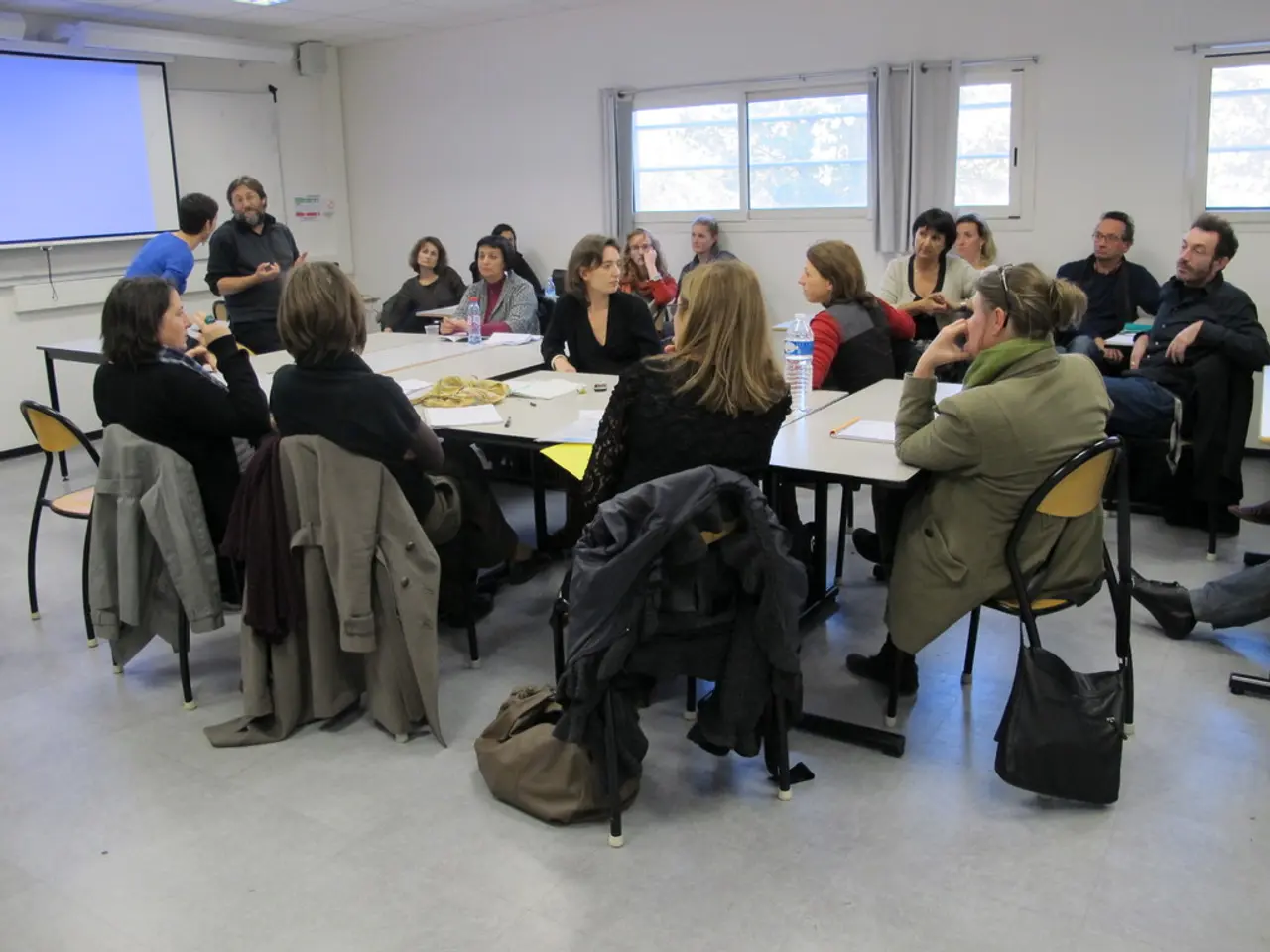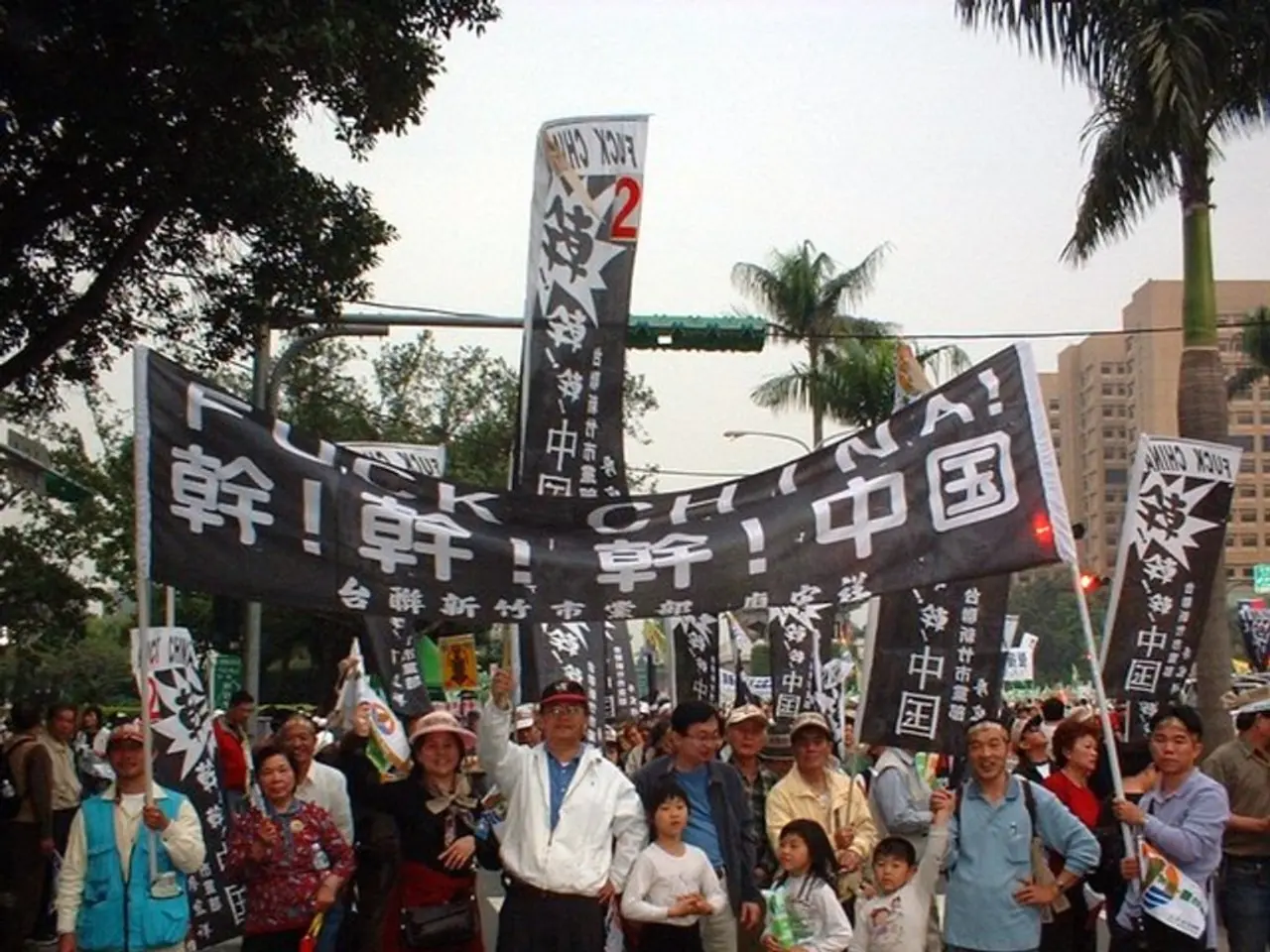Disconnect from the power source quickly!
The digital landscape has undergone a significant transformation during political campaigns, creating a complex environment for respectful political debate. Dr. Theresa Hein, a renowned expert in political communication, has expressed concerns about the current state of political discourse online, particularly the rising trend of divisive misinformation, increasing hostility, and the impact on friendships.
In her recent work at the FU Berlin, Dr. Hein has highlighted several challenges that hinder constructive debate and respectful coexistence in digital spaces. These include the proliferation of misinformation and disinformation, amplified by the rising use of digital platforms and AI-generated content, which make it difficult for people to find reliable information and contribute to social polarization.
Another challenge is the conflicting legal and regulatory approaches to online freedom of expression, particularly relating to synthetic media (e.g., deepfakes) in elections. For example, the US broadly protects free expression under the First Amendment, limiting regulation, while Brazil imposes restrictions on AI-generated content and holds Big Tech accountable for harmful political content.
Tensions over platform accountability also pose a significant challenge, as countries adopt diverse digital regulations that impact global digital governance and create friction among nations and technology companies. Furthermore, the geopolitical divide between digital governance models—China’s centralized, state-led approach versus the US’s market-driven, liberal norms model—adds complexity to international consensus on managing digital political discourse and AI’s role in democracy.
However, Dr. Hein also proposes several solutions to foster constructive debate and respectful coexistence. These include digital literacy initiatives and awareness programs to educate citizens about risks in digital spaces and help individuals critically assess and challenge misinformation. Improved accountability and transparency for AI and platforms are also crucial, so that harmful or biased content, especially during elections, can be better identified and mitigated.
Developing and harmonizing digital regulations at national and international levels is another proposed solution, balancing freedom of expression with protecting electoral integrity and reducing harmful political misinformation. Broadening public and scholarly debates about AI and democracy is also essential to consider complex impacts of AI on political understanding and participation.
Lastly, encouraging cooperation among governments, civil society, tech companies, and international bodies to define ethical frameworks, transparency standards, and democratic safeguards for AI use in political communication is crucial.
In a personal note, Dr. Theresa Hein has also shared her experiences of the breaking of friendships due to politicized social media posts. She hopes for more positive and optimistic times in the future, where social media can once again be a platform for inspiring and informative content, rather than a starting point for hate.
References:
- World Economic Forum’s Global Risks Report
- Brazil’s electoral court regulations
- Debates about AI and democracy
- Various digital regulations from different countries
- Geopolitical tensions regarding digital governance models
Digital communication on social-media platforms often serves as a battleground for entertainment, politics, and general-news debates, reflecting Dr. Hein's concerns about the impact on friendships. To combat the challenges posed by misinformation, accountability improvements for AI and platforms, digital literacy initiatives, and harmonized digital regulations are proposed to foster respectful coexistence and constructive debate.







